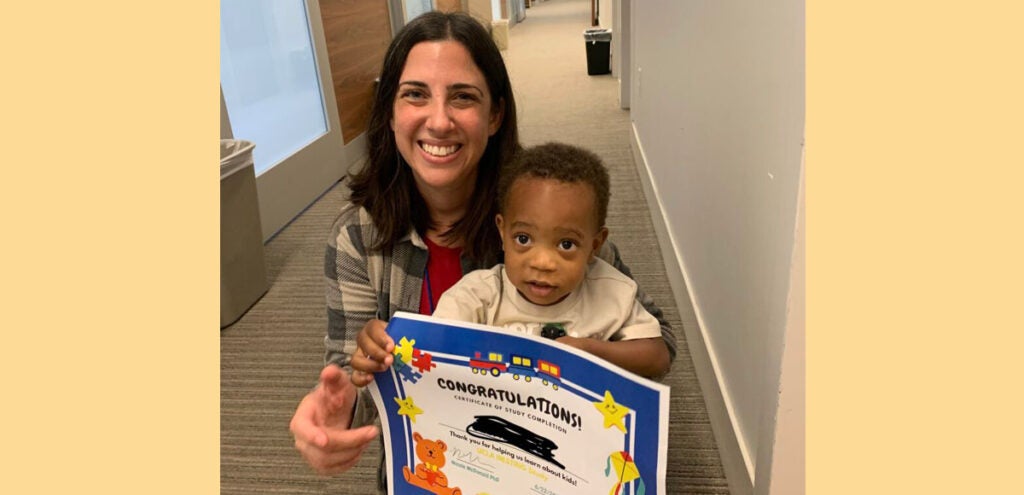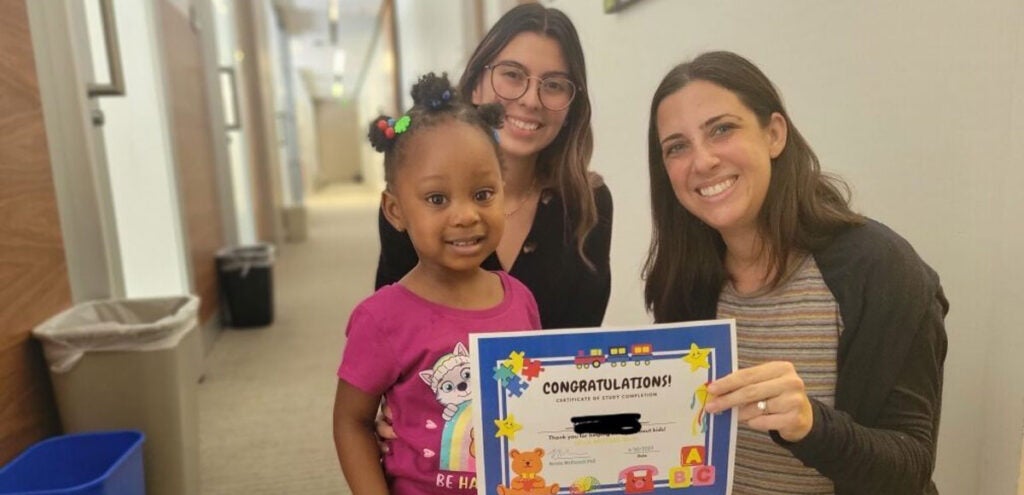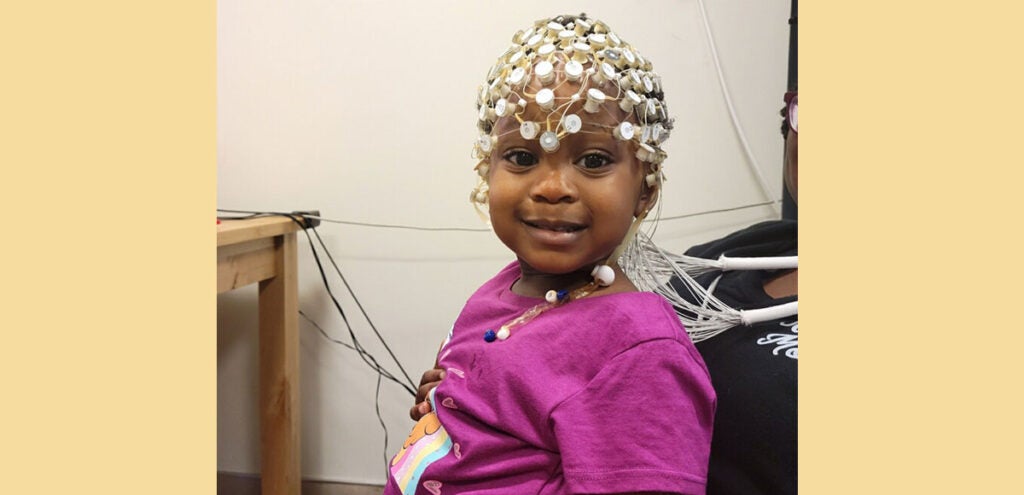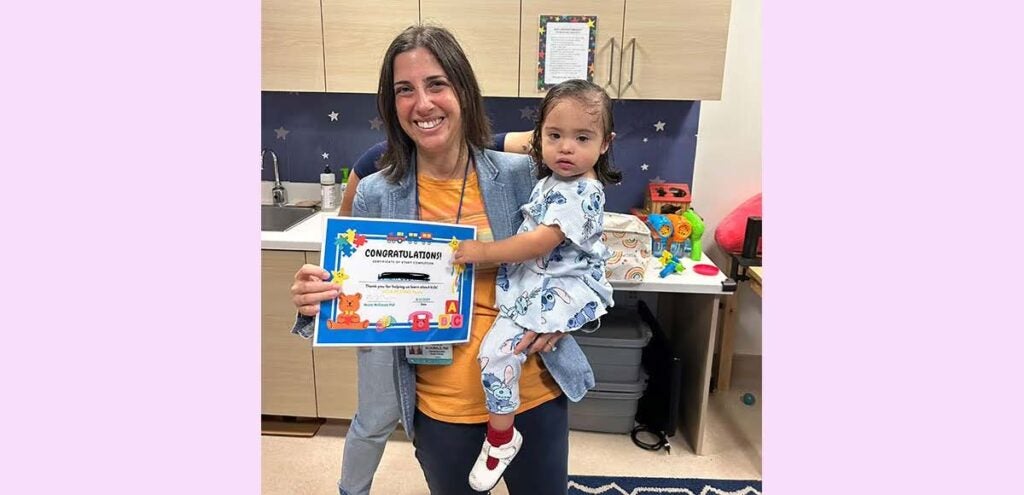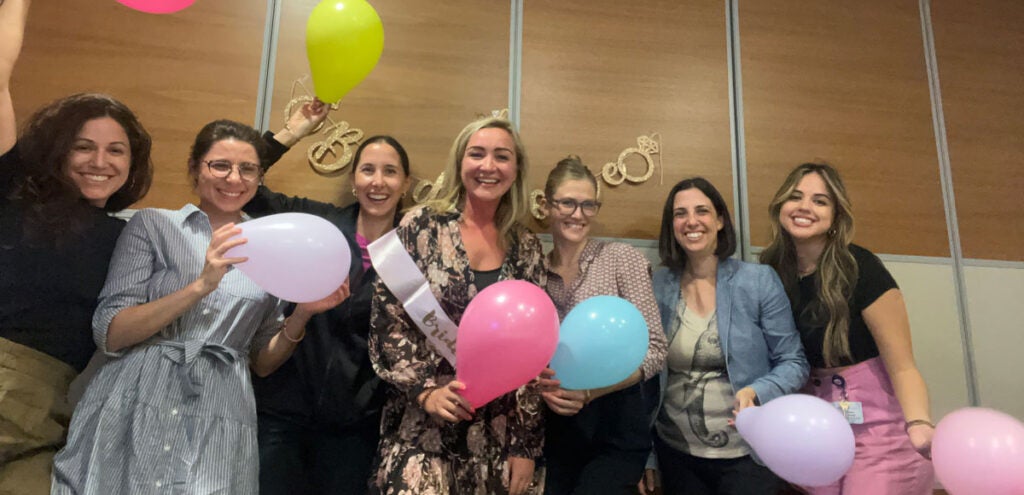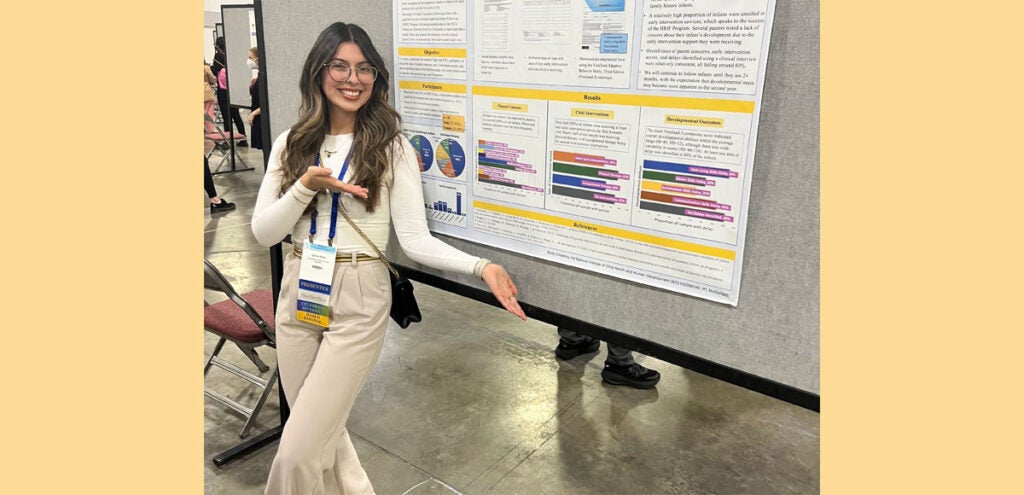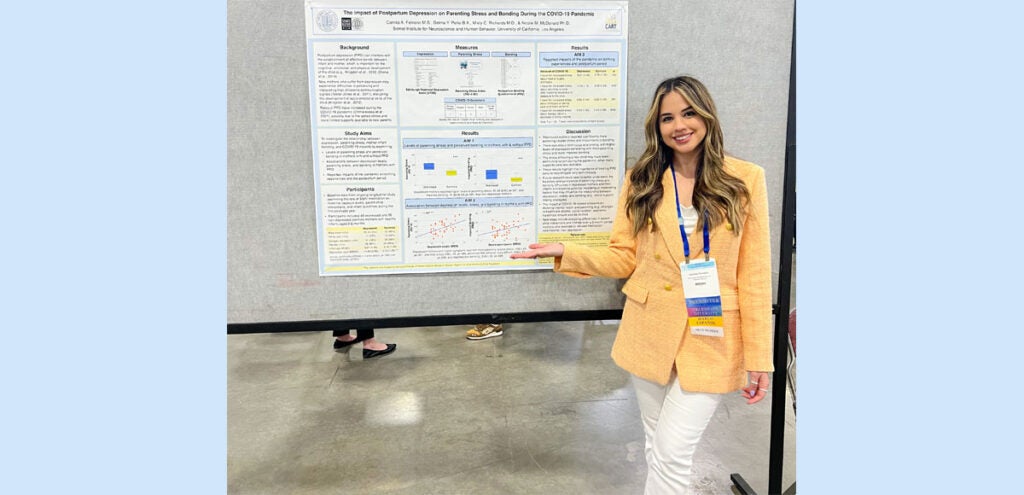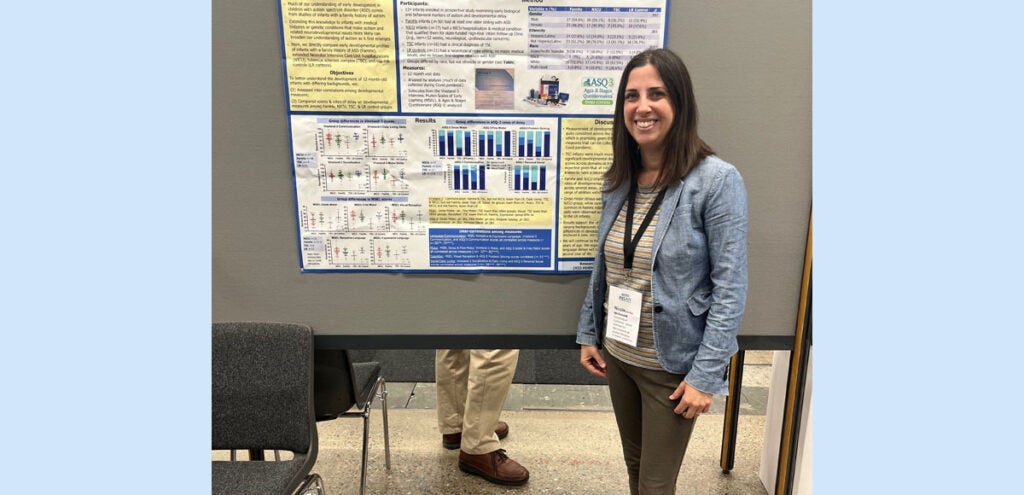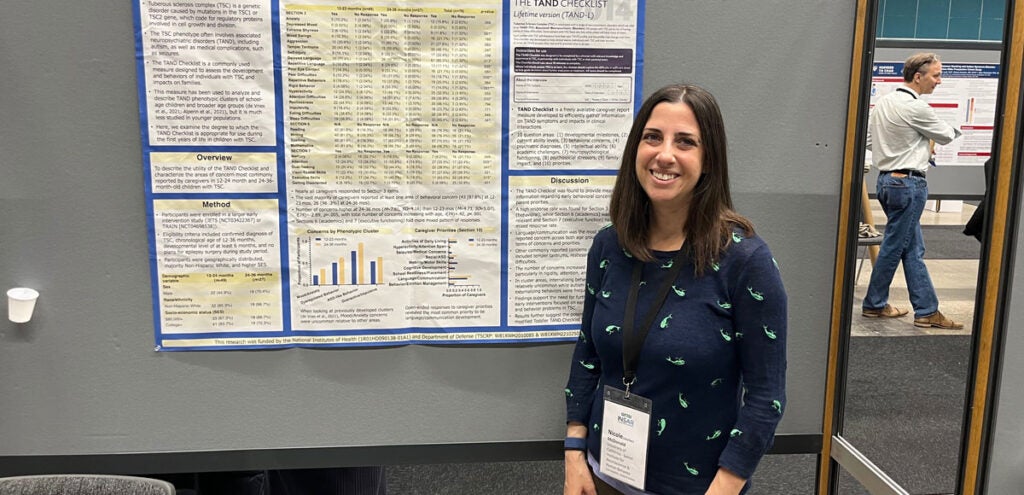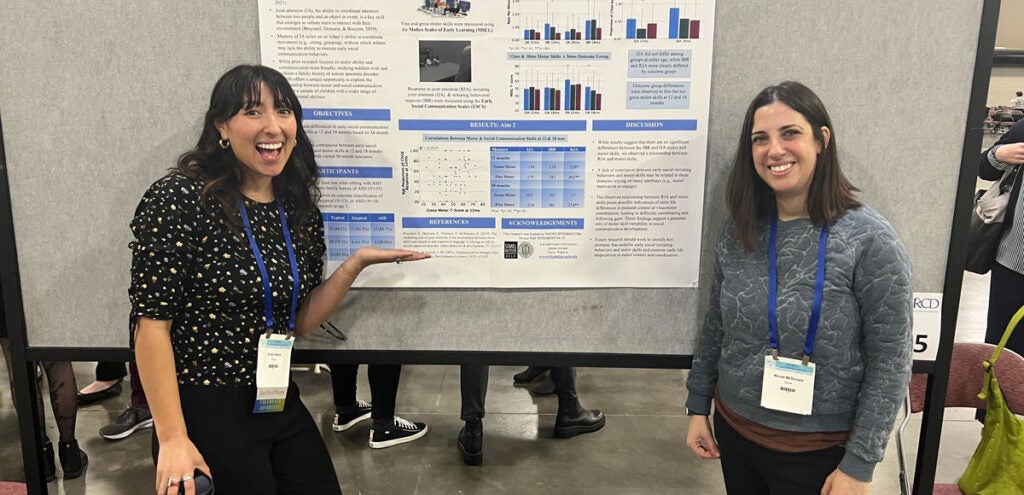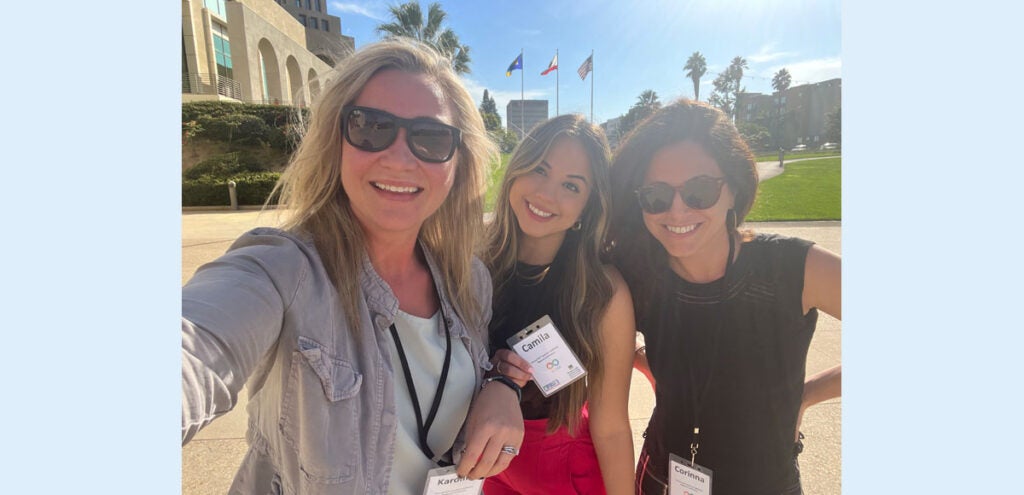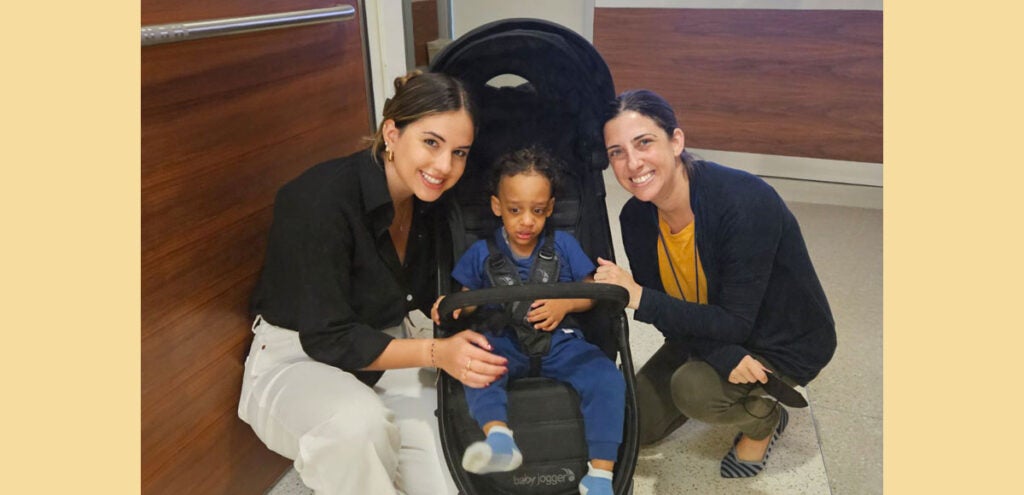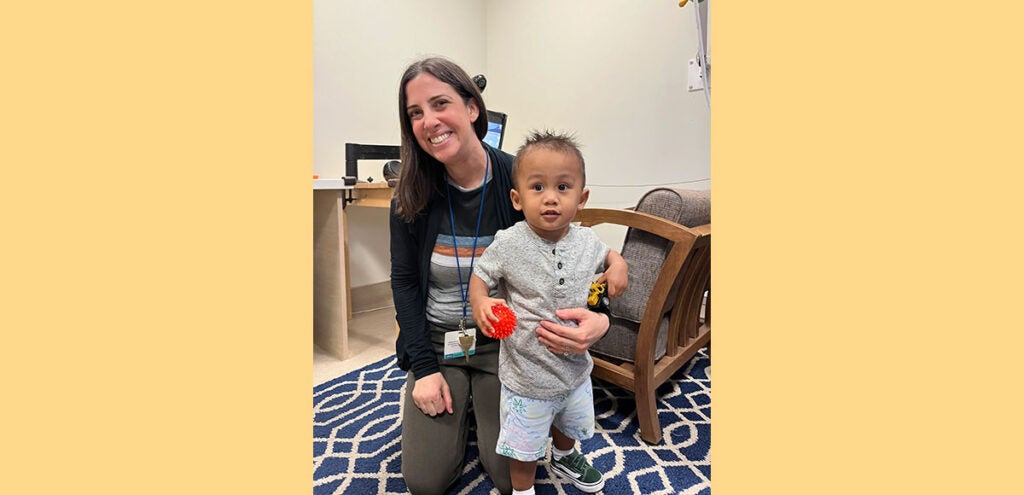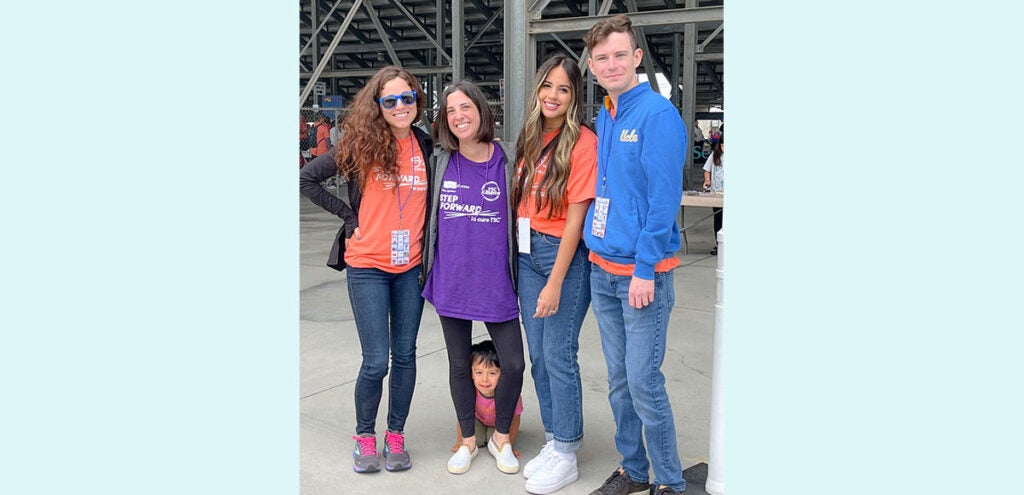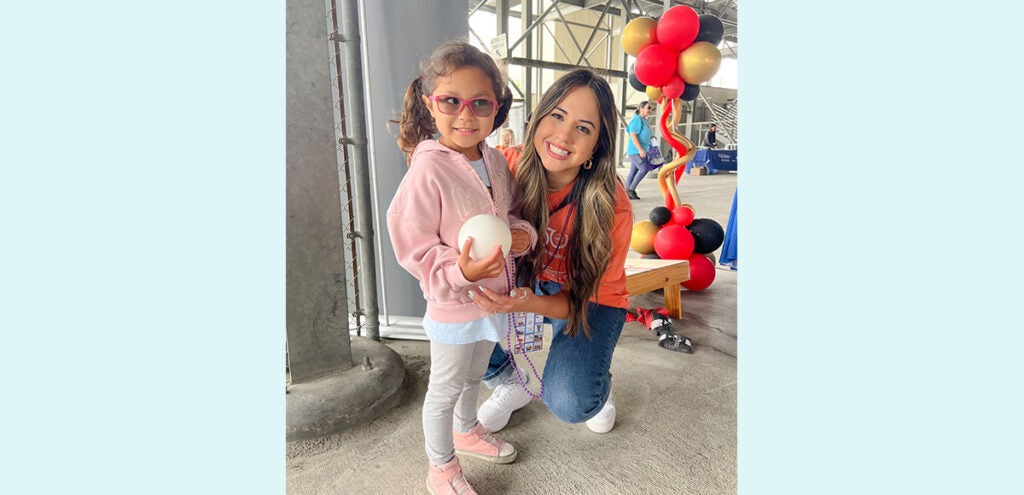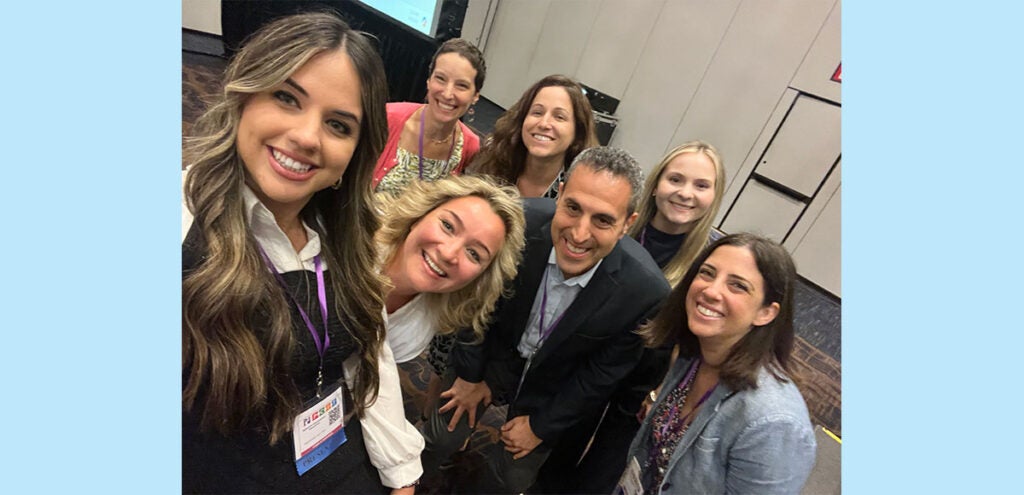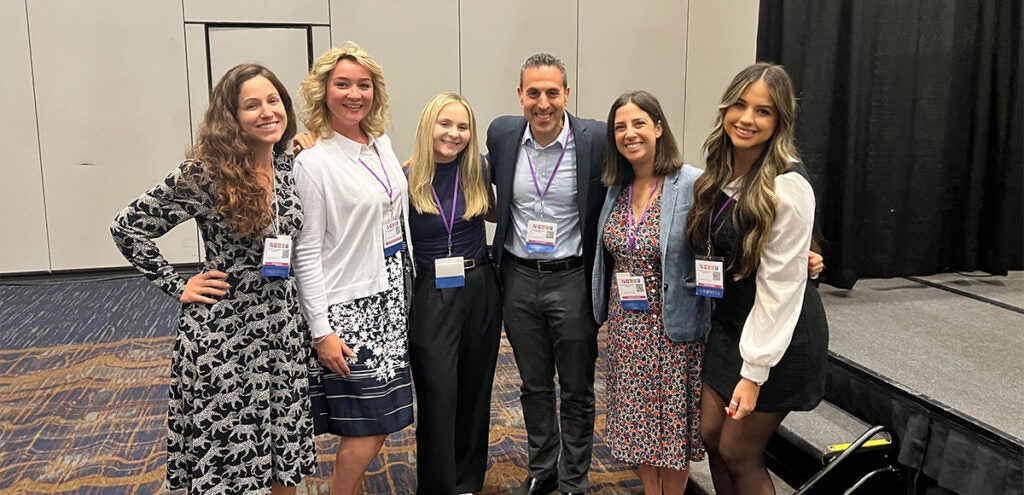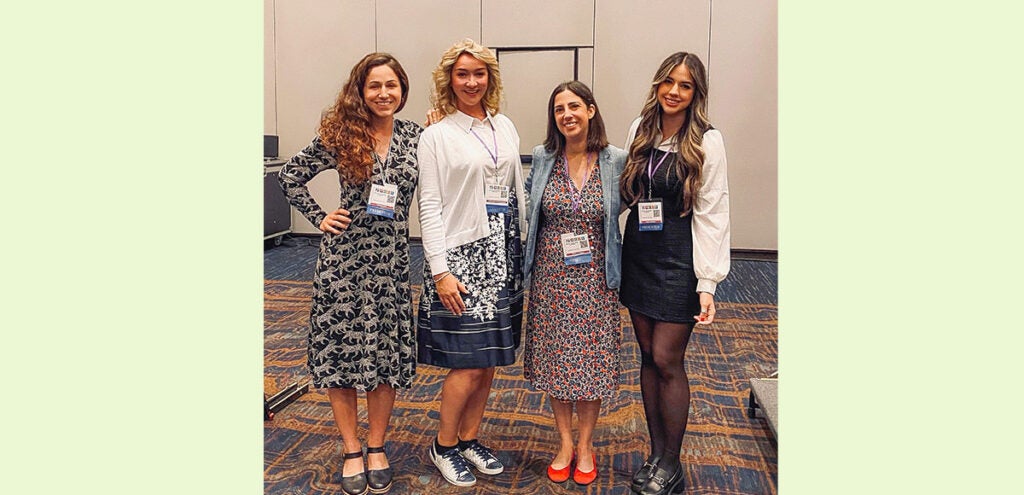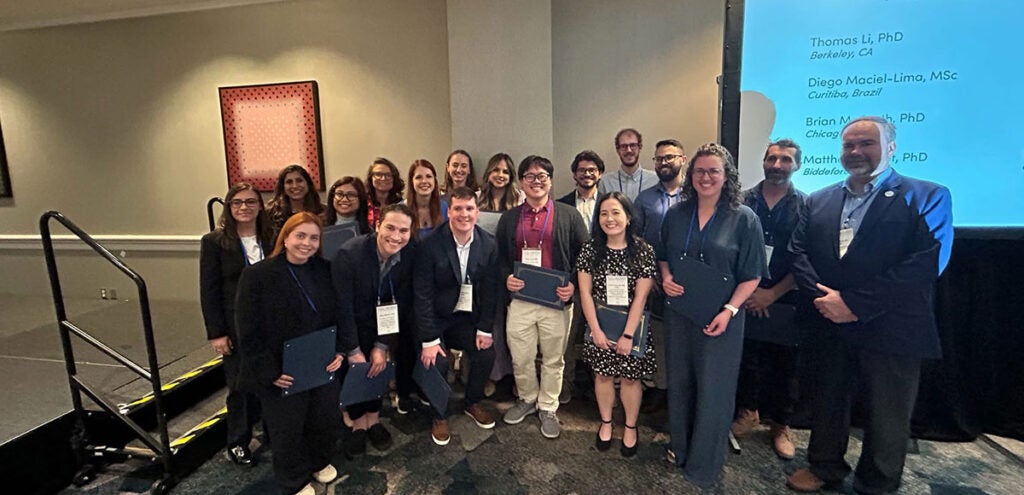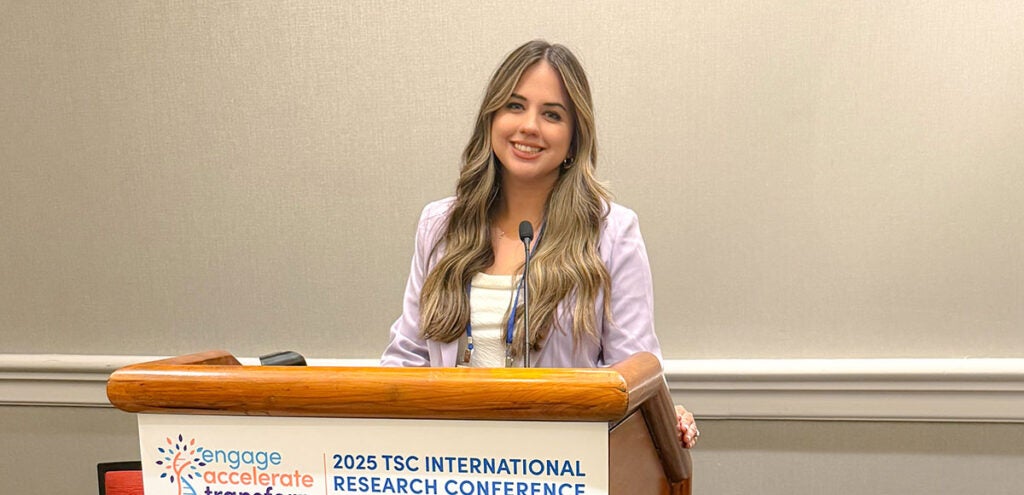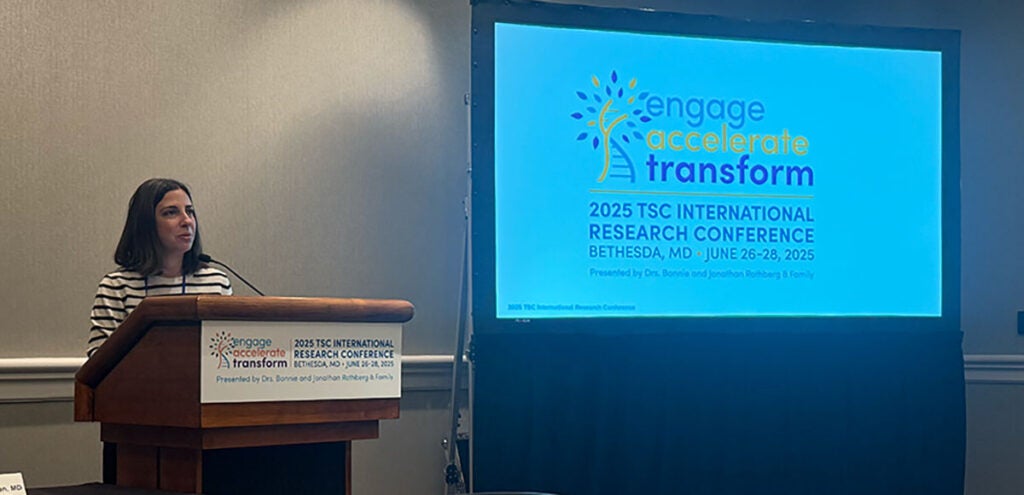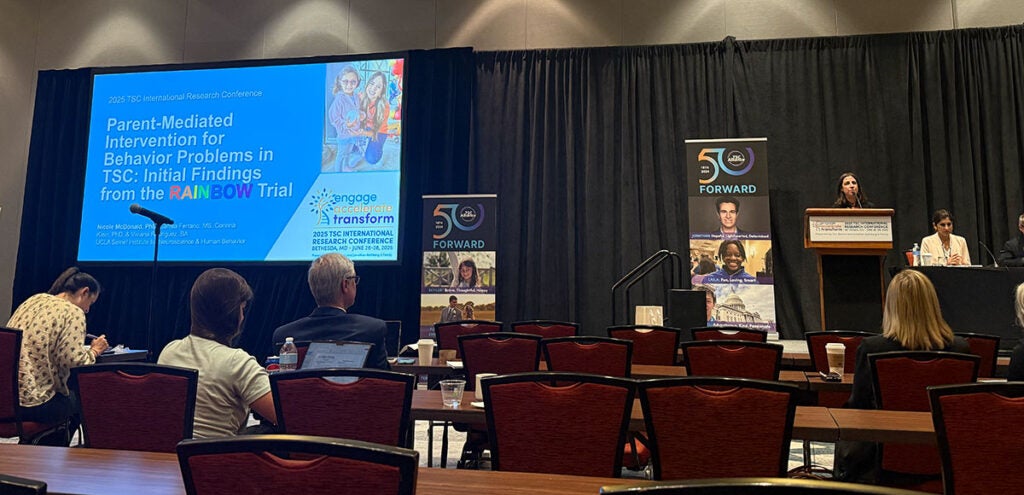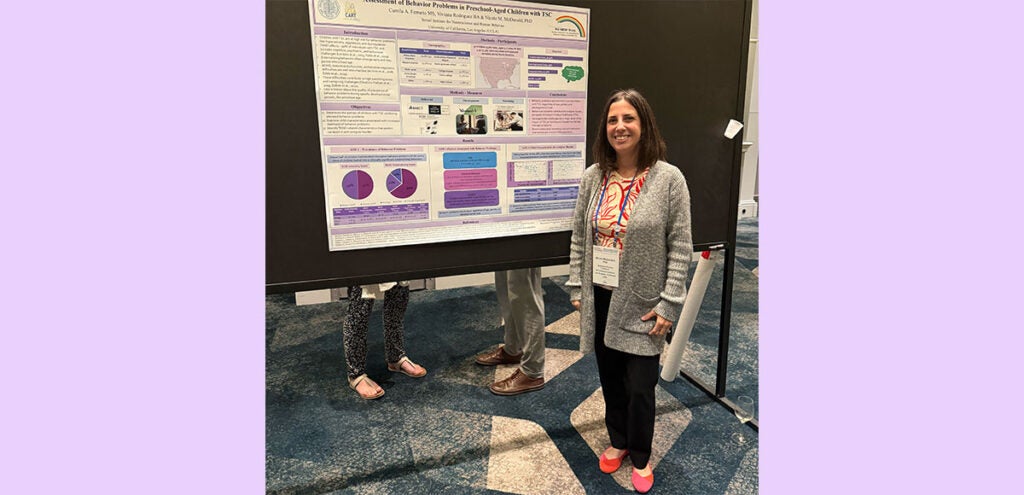Research Laboratory

Leadership
Nicole McDonald, PhD
Principal Investigator
About
The McDonald Lab is committed to advancing knowledge and understanding in the field of neurodevelopmental disorders, with a specific emphasis on Autism Spectrum Disorder (ASD) and genetic conditions such as tuberous sclerosis complex (TSC). Our research endeavors are centered around gaining deeper insights into these disorders and their underlying mechanisms. Our primary goal is to contribute to the expanding knowledge and comprehension of neurodevelopmental conditions and genetic disorders.
Our mission is to conduct research that integrates brain-based methodologies and naturalistic behavioral assessments to unravel the complexities of early social and emotional development in at-risk infants and toddlers.
We employ a multidisciplinary approach that integrates brain-based methods such as Electroencephalography (EEG) with naturalistic behavioral assessments. By combining these techniques, we aim to gain valuable insights into the complex dynamics of early social and emotional development in infants at an increased risk for ASD. In addition to our focus on early social and emotional development in infants at risk for ASD, our lab is actively involved in research pertaining to individuals with tuberous sclerosis complex (TSC). We aim to test the efficacy of an evidence-based intervention tailored to preschool-aged children who exhibit behavior problems. By evaluating the outcomes of these treatments, we strive to contribute to the growing body of knowledge regarding effective therapeutic approaches for this specific population.
Additionally, our lab is examining the associations between maternal basal salivary oxytocin levels and mother-infant interaction. We explore the concurrent and longitudinal connections between these variables to gain a deeper understanding of how oxytocin levels relate to the quality of mother-infant interactions. This research contributes to our overall goal of promoting positive mother-infant relationships and enhancing the well-being of both mothers and infants.
By delving into these diverse research areas, we aim to not only advance knowledge but also inform evidence-based practices in the fields of neurodevelopmental disorders and at-risk infants. Our ongoing commitment to uncovering the complexities of early social and emotional development is fueled by the potential to make a meaningful impact on the lives of individuals and families facing these challenges.
Our Team
-

Nicole McDonald, Ph.D.
Principal Investigator, Assistant Clinical Professor -

Camila Ferrario, MS LMFT
Behavioral Health Specialist -

Corinna Klein, Ph.D.
Postdoctoral Scholar -

Viviana Rodriguez
Staff Research Associate -

Ying Yan
Research Assistant Volunteer -

Jaquelin Trujillo
Volunteer -

Jacqueline Nguyen
Research Assistant Volunteer
Participate in Research
Parent-Child Interaction Therapy for Minimally Verbal Autistic Children and Their Families (Currently enrolling English & Spanish speaking participants!)
Your child may be eligible for this study if they have a diagnosis of autism spectrum disorder (ASD) and:
- Are 3–5 years old
- Do not yet talk or use minimal language
- English or Spanish is the primary language spoken in your home
- You live anywhere in the United States
Click on the following link and fill in your information to get contacted by our study team!
https://docs.google.com/forms/d/e/1FAIpQLSdLT9-MdmZYSfWp0lTC2jQVb34nXxYv-iCDUAR0LMdUtQVedA/viewform?usp=sf_link
Su hijo(a) puede ser elegible para este estudio si tiene un diagnóstico de trastorno del espectro autista (TEA) y:
- Tiene entre 3 y 5 años de edad
- Aún no habla o utiliza lenguaje mínimo
- El inglés o el español es el idioma principal que se habla en su hogar
- Vive en cualquier lugar de los Estados Unidos
Haz clic en el siguiente enlace y completa tu información para que nuestro equipo de estudio pueda ponerse en contacto contigo: Haz clic en el siguiente enlace y completa tu información para que nuestro equipo de estudio pueda ponerse en contacto contigo:
https://docs.google.com/forms/d/e/1FAIpQLSdDlrgJM35ffhlR3hCVl22P-GIRPTCzmj4SrbD789yVjO_-hQ/viewform?usp=sf_link
Parent-Child Interaction Therapy for Postpartum Depression (Currently enrolling participants!)
UCLA Researchers Are Studying a Dyadic Treatment for Mothers With Postpartum Depression
You may be eligible for this study if you have a baby 3 to 12 months of age and have experienced new symptoms of depression since having your baby.
This study involves:
- 2 virtual assessment visits
- 6 virtual treatment sessions
NESTING Study
Neurodevelopment and Early Social-Emotional Trajectories In NICU Graduates
We are interested in better understanding early brain and social development in infants who had early medical issues requiring a NICU stay. This research will help us learn how to better support and help babies with early medical issues and their families. This study is a collaborative effort between the UCLA Center for Autism Research and Treatment and High-Risk Infant Follow-up Clinic.
Your baby may be eligible for this study if he/she:
- Is 6 months old or younger (adjusted age)
- Has a history of Neonatal Intensive Care Unit (NICU) hospitalization
We are no longer enrolling participants for this study.
SSRI Study
Infant Attachment Security and Perinatal Depression: The Effect of SSRI Treatment on Salivary Oxytocin Levels and Early Mother-Infant Interactions
UCLA researchers are studying the relationship between Oxytocin and the mother-infant relationship in mothers with and without postpartum depression
You may be eligible for this study if you have a baby 6 months of age or younger, and:
- You have new symptoms of depression since having your baby
OR
- You are not experiencing symptoms of depression
We are no longer enrolling participants for this study.
Publications
NESTING Study
- Mother–Infant Relational Quality Following a NICU Stay: Investigating the Role of Maternal Childhood Experiences | Published in International Journal Environmental Res Public Health. Klein, C.C, Ferrario, C. A., Yan, Y., & McDonald, N. M.(2025)
- Parenting Stress Following a Neonatal Intensive Care Unit Hospitalization: A Longitudinal Study of Mothers and Fathers | Published in International Journal of Environmental Research and Public Health.
Corinna C. Klein, PhD, Nicole M. McDonald, PhD. (2024). - Developmental trajectories in high-risk NICU graduates during the first year of life | Published in Early Human Development Journal. McDonald, N. M., Qian, Q., Ferrario, C. A., Senturk, D., Iyer, S., & Jeste, S. S. (2025)
SSRI Study
- Postpartum Depression and the Emerging Mother-Infant Relationship: Associations with SSRI Medication Use | Published in Journal of the American Academy of Child & Adolescent Psychiatry. Nicole M. McDonald, PhD, Camila A. Ferrario, LMFT, MS, Ying Yan, BS, Qi Qian, PhD, Damla Senturk, PhD, Misty C. Richards, MD, MS. (2025).
- The Impact of Postpartum Depression on the Early Mother-Infant Relationship during the COVID-19 Pandemic: Perception versus Reality | Published in International Journal Environmental Res Public Health. Richards, M. C., Ferrario, C. A., Yan, Y., & McDonald, N. M. (2024)
- Richards MC, Ferrario CA, Yan Y, McDonald NM. The Impact of Postpartum Depression on the Early Mother-Infant Relationship during the COVID-19 Pandemic: Perception versus Reality. International Journal of Environmental Research and Public Health. 2024; 21(2):164. https://doi.org/10.3390/ijerph21020164
RAINBOW Study
Our Community:
